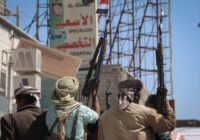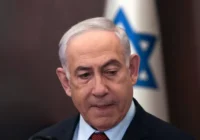Yemen remains on the margins for the international community even as millions suffer from a deepening economic crisis and lack of humanitarian aid. It has been ten years since the Houthis, an Iranian-sponsored terrorist group, gained control of Yemen’s capital Sana’a, and nearly a year since they began strikes within the Bab el-Mandeb Strait in the southern Red Sea.
Despite the ongoing strife, world leaders at the 79th session of the UN General Assembly (UNGA 79) in September merely reiterated the same sentiments that they have been repeating over the past six months. They condemned Houthi terrorism, but they did not put forward a coherent strategy to halt the strikes and force the Sana’a rebels back to negotiations.
Tensions grow amid broken promises
The people of South Yemen, in particular, cannot wait another year for solutions. Conditions on the ground are ripe for instability. The areas under the internationally recognized Presidential Leadership Council (PLC), the Yemeni institution officially recognized by the international community, remain fragile across South Yemen. The PLC and its Saudi-led international allies cannot afford distractions from the fight against Houthis. Neither can the Southern Transitional Council (STC), the secessionist organization backed by the United Arab Emirates. While the PLC and the STC signed the Riyadh Agreement in April 2022, joining forces against the Houthis, the STC still advocates for the South’s secession. As discontent against both leaderships grows, leaders must advance the interests of the marginalized population to sustain momentum against the Houthis.

Via Borysk5 on Wikimedia Commons (CC BY-SA 4.0).
The Riyadh Agreement not only transferred power from former president Abd-Rabbu Mansour Hadi to the newly established PLC, but it also served to recognize the STC as the representative of the people of South Yemen. STC chief Aidarus al-Zubaidi stated that the agreement would pave the way “to develop a negotiating framework” wherein “determining the future, the solution of the issue of the people of the South [should come] naturally.” However, more than two years since the STC joined with the PLC, South Yemenis remain marginalized.
Initially, the PLC didn’t aim to resolve the political conflict in the South, but rather to unite ranks with the STC against the Houthis. However, the PLC has not made much progress on this front. Lack of trust between the parties prevented military unity. While the lack of success undoubtedly affects the STC, the PLC became the main focus of criticism when it proved unable to counter Houthi strikes that halted all oil and gas production.
The government has made no progress regarding the issue of southern independence. When al-Zubaidi joined the talks in 2022, he aimed to situate the southern issue front and center. However, a year later, PLC leader Rashad al-Alimi claimed that “now is not the right time to discuss southern independence.” STC officials immediately shot back at al-Alimi, claiming he “showed a lack of seriousness.”
Alimi’s comments inflamed feelings across the South, not only among pro-STC elements but also among the tribes of eastern Yemen, an area that is formally under PLC control. The PLC has failed to meet basic demands for public services in areas like the eastern region of Hadhramaut. When al-Alimi visited Hadhramaut in July, he was met by protests. Then, on October 14, thousands in Seiyun, Hadhramaut sent a clear message to al-Alimi. During a celebration commemorating the 61st anniversary of independence from Britain, citizens of Hadhramaut expressed their support for the STC. On October 19, another event in al-Ghaydah, al-Mahra promoted “Southern Identity” as a symbol against PLC leadership.
A deepening economic crisis stokes tensions in the South
South Yemenis are dissatisfied. The PLC has failed to eliminate security threats, public services are diminishing, and an economic crisis is deepening. Over the last year, the Houthis have been attacking commercial vessels transiting through the Red and Arabian Seas. Their tactics and weapons have evolved with potency and efficiency. Al-Zubaidi points out that failures to deal with Houthis are “no longer acceptable.” He maintains that “it is in the interest of our people to end the conflict and find a permanent solution.”
Related Reading
Not only have the Houthis interfered with international shipping lanes, they have also devastated southern Yemeni ports. This dramatically increases the difficulty of getting imports into South Yemen, exacerbating inflation and choking supplies of international food aid.
According to the OCHA, food imports in the southern ports of Aden and Mukalla declined by 13%. The UN Office for the Coordination of Human Affairs (OCHA) notes that shortages in incoming aid left “around 3.6 million [Yemenis] with reduced rations.” More funding crises could affect a further 2.5 million. The Yemeni rial also slid “to an all-time low of YER1,681/USD by the end of April 2024.”
The failure to stop Houthi attacks has also prevented Yemen from exporting oil, a potential source of much-needed cash. In mid-2021, the Houthis attempted to take over oil facilities across Shabwa. After they failed to do so, in October 2022 their strategy shifted to using missiles and drones against factories, ports and oil tankers, effectively shutting production down.
Just prior to al-Alimi’s arrival in New York for the UNGA 79, reports surfaced claiming the PLC had failed to produce a new budget. Al-Alimi held meetings with a number of UN officials and representatives of Western donor countries but failed to gain a public commitment for financial support. Until the PLC is able to put forth a cohesive plan to unite the country of Yemen against Houthi threats, Yemen will not receive international support. In the meantime, public unrest will only grow.
[Cheyenne Torres edited this piece.]
The views expressed in this article are the author’s own and do not necessarily reflect Fair Observer’s editorial policy.
Support Fair Observer
We rely on your support for our independence, diversity and quality.
For more than 10 years, Fair Observer has been free, fair and independent. No billionaire owns us, no advertisers control us. We are a reader-supported nonprofit. Unlike many other publications, we keep our content free for readers regardless of where they live or whether they can afford to pay. We have no paywalls and no ads.
In the post-truth era of fake news, echo chambers and filter bubbles, we publish a plurality of perspectives from around the world. Anyone can publish with us, but everyone goes through a rigorous editorial process. So, you get fact-checked, well-reasoned content instead of noise.
We publish 2,500+ voices from 90+ countries. We also conduct education and training programs
on subjects ranging from digital media and journalism to writing and critical thinking. This
doesn’t come cheap. Servers, editors, trainers and web developers cost
money.
Please consider supporting us on a regular basis as a recurring donor or a
sustaining member.
Will you support FO’s journalism?
We rely on your support for our independence, diversity and quality.












Comment